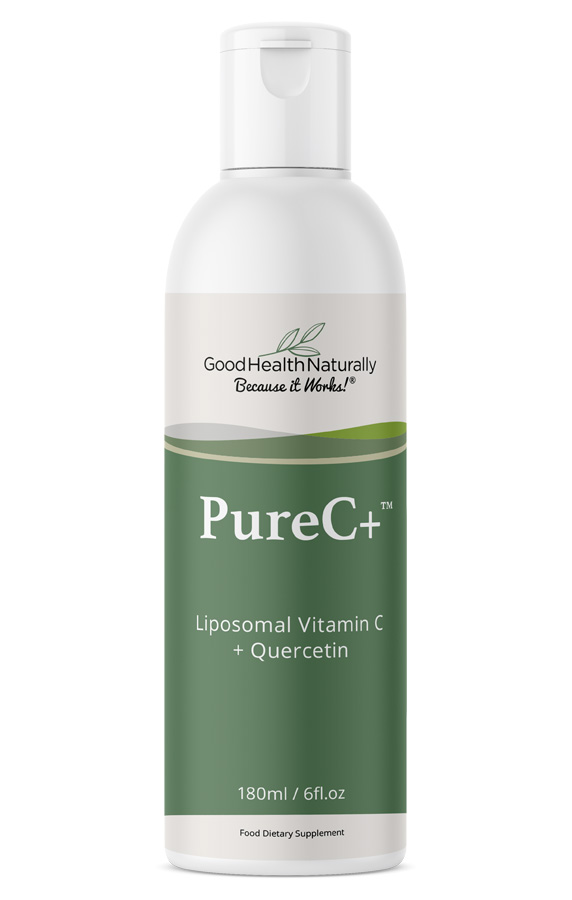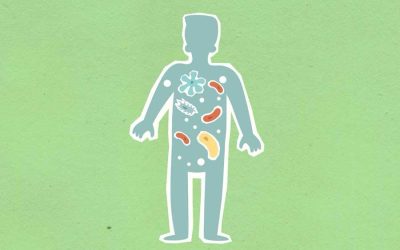Seasonal allergies can make spring and summer feel like a battleground. Watery eyes, sneezing, congestion, and fatigue. These symptoms affect millions and often drive people to over-the-counter antihistamines. But what if there were a natural compound that helped manage allergy symptoms at the source? Enter quercetin, a flavonoid found in many fruits and vegetables, which has been increasingly studied for its potential to relieve seasonal allergies by modulating the body’s histamine response.
Could quercetin for seasonal allergies be a game-changer for natural health seekers? Let’s take a closer look at the science.
What Is Quercetin?
 Quercetin is a plant pigment (flavonol) found in a wide range of foods, including onions, apples, capers, berries, citrus, and leafy greens. It’s also present in green tea and red wine. In its natural form, quercetin is part of the polyphenol family, known for its powerful antioxidant and anti-inflammatory benefits.
Quercetin is a plant pigment (flavonol) found in a wide range of foods, including onions, apples, capers, berries, citrus, and leafy greens. It’s also present in green tea and red wine. In its natural form, quercetin is part of the polyphenol family, known for its powerful antioxidant and anti-inflammatory benefits.
In supplement form, quercetin is typically provided as quercetin dihydrate or quercetin phytosome, which may offer better bioavailability. When taken regularly, it’s thought to support immune regulation, inflammation control, and even cardiovascular and respiratory health.
But it’s the compound’s mast cell-stabilising effects that have drawn the most interest in recent years for allergy relief.
How Quercetin Supports Allergy Relief
Seasonal allergies, also known as allergic rhinitis or hay fever, are triggered by airborne allergens like pollen. In susceptible individuals, exposure to these allergens triggers the immune system to release histamine from mast cells, causing inflammation and symptoms like sneezing, a runny nose, and itchy eyes.
Quercetin’s potential to reduce allergy symptoms lies in several overlapping mechanisms:
1. Mast Cell Stabilisation
Quercetin has been shown to inhibit mast cell degranulation, thereby reducing the release of histamine and other inflammatory mediators. In a 2006 study published in Inflammation Research, quercetin significantly reduced histamine release from mast cells in both in vitro and animal models, suggesting a direct stabilising action on these cells.
2. Anti-Inflammatory Action
Quercetin helps suppress the production of pro-inflammatory cytokines like IL-6 and TNF-α, both implicated in allergic responses. A study in Biological & Pharmaceutical Bulletin (2002) demonstrated that quercetin inhibited lipopolysaccharide-induced TNF-α and IL-1β production in macrophages.
3. Antioxidant Protection
Chronic allergic inflammation generates oxidative stress. As a potent antioxidant, quercetin neutralises reactive oxygen species (ROS), helping to reduce tissue damage and further inflammatory cycles.
4. Immune Modulation
Quercetin may help balance Th1/Th2 immune responses, which are often skewed in individuals with allergies. Some research suggests that it downregulates Th2-dominant reactions that drive conditions like hay fever and asthma.
Together, these effects provide a compelling scientific foundation for using quercetin for seasonal allergies as a safe, natural alternative to conventional treatments.
What Does the Research Say?
Human Studies
While much of the foundational research has been conducted in vitro or in animal models, several human trials have also shown promising results:
- A 2016 clinical study published in The Journal of Nutritional Biochemistry found that a combination of quercetin, vitamin C, and bromelain improved nasal symptoms and quality of life in people with seasonal allergies. While this study used a blend, the researchers noted that quercetin likely played a key role due to its antihistamine-like action.
- In a 2012 study involving patients with allergic rhinoconjunctivitis, a supplement containing quercetin and perilla extract significantly reduced eye symptoms compared to a placebo.
- A 2020 review in Frontiers in Immunology reaffirmed quercetin’s role in allergy modulation, summarising findings that showed reduced airway inflammation and eosinophil infiltration in asthma and allergic rhinitis models.
These results suggest that quercetin, especially when combined with other supportive nutrients, can offer tangible benefits for those seeking natural relief from seasonal allergies.
Natural Allergy Relief: A Holistic Strategy
Using quercetin for seasonal allergies is most effective when combined with other healthy habits and nutrients:
- Bromelain (an enzyme from pineapple) enhances quercetin absorption and may help reduce mucus and inflammation.
- Vitamin C acts as a natural antihistamine and immune supporter.
- Neti pots or saline sprays help clear allergens from nasal passages.
- HEPA filters can reduce indoor pollen exposure.
- An anti-inflammatory diet (rich in polyphenols and omega-3s) helps reduce baseline immune reactivity.
Together, these form a well-rounded strategy for managing seasonal allergies naturally, without the drowsiness or long-term dependency associated with conventional antihistamines.
Are There Any Side Effects?
Quercetin is generally considered safe when used at recommended doses (typically under 1,000 mg daily). Some people may experience mild digestive upset when taken in high amounts.
Due to its potential to affect certain enzymes, quercetin may interact with medications. It’s best to consult a healthcare practitioner before starting, particularly if you’re taking blood thinners or drugs metabolised by the liver.
Final Thoughts: Is Quercetin the Natural Antihistamine You’ve Been Looking For?
The research into quercetin for seasonal allergies continues to grow, and while it’s not a magic bullet, it offers meaningful support for many people looking to manage their symptoms naturally. Its combination of mast cell stabilisation, anti-inflammatory, and antioxidant effects makes it a powerful tool in the natural health toolkit, especially when combined with other lifestyle strategies.
If you’re tired of reaching for conventional antihistamines each spring, quercetin might just offer the gentle, science-backed alternative you’ve been looking for.
References:
- Rogerio AP, et al. “Anti-inflammatory effect of quercetin-loaded microemulsion in the airways allergic inflammatory model in mice.” Inflammation Research, 2006.
- Nair MP, et al. “Flavonoid quercetin inhibits proinflammatory cytokine (tumor necrosis factor alpha) gene expression in normal peripheral blood mononuclear cells via modulation of the NF-κB system.” Biological & Pharmaceutical Bulletin, 2002.
- Boots AW, et al. “Health effects of quercetin: From antioxidant to nutraceutical.” European Journal of Pharmacology, 2008.
- Tanaka T, et al. “Suppression of interleukin-4 gene expression in mast cells by quercetin through the inhibition of the activation of AP-1 and NF-AT.” International Archives of Allergy and Immunology, 2001.
- Cicero AFG, et al. “Effects of a food supplement containing bromelain, vitamin C and quercetin on symptoms of seasonal allergic rhinitis: A randomised, double-blind, placebo-controlled trial.” J Nutr Biochem, 2016.
- Shin TY, et al. “Anti-allergic effects of flavonoid, quercetin, on antigen-induced allergic reaction in RBL-2H3 cells.” International Journal of Immunopathology and Pharmacology, 2012.
- Mlcek J, et al. “Quercetin and its anti-allergic immune response.” Frontiers in Immunology, 2020.




